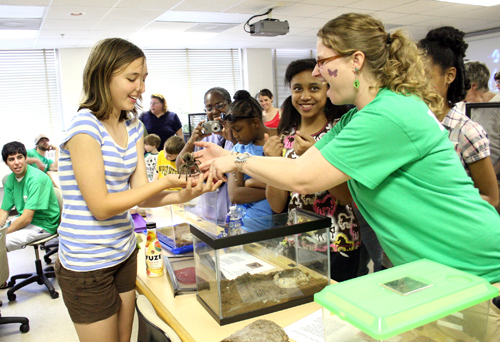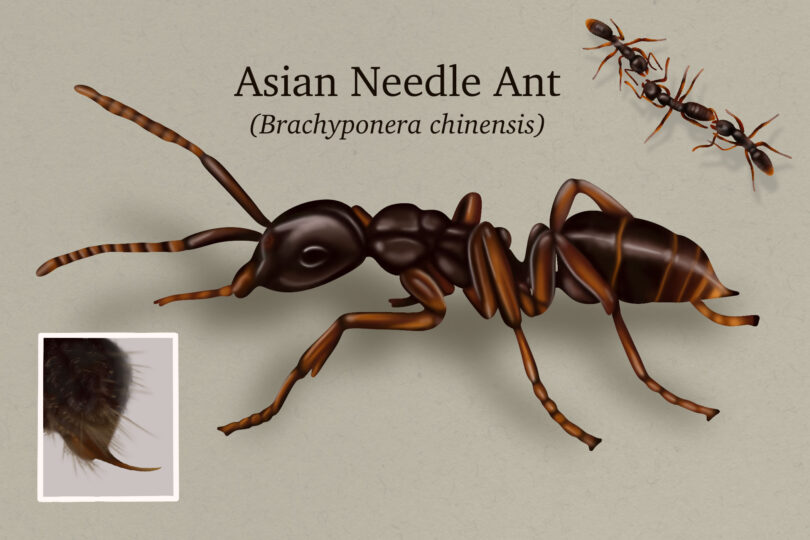University of Georgia student Drew Butler can kick a football – his longest punt in a game was 75 yards against Oklahoma State in 2009, the same year he was named college football’s top punter. But when it comes to cricket spitting, he prefers to judge from the sidelines.
Cricket spitting entered its second year as a competition at UGA’s annual Insect Zoo this April. Butler and classmate David Koonin helped take the event to the next level by becoming certified Guinness World Record judges. Their job was to measure and verify each cricket spit at the competition.
A few people came within inches, but none had the lung power to break the current Guinness record of 30 feet 1.2 inches held by Danny Capps of Madison, Wis.
“It’s a record for a reason,” Butler said, “because it’s a pretty long way to spit a cricket.”
Cricket spitting is the most athletic activity offered during the Insect Zoo. Because crickets are pretty light, Butler, a junior studying telecommunications, said it’s important to have “the power and angle so the cricket carries the most.”
Butler’s longest cricket spit is about 20 feet.
The zoo is put on by the College of Agricultural and Environmental Sciences Entomology Department and H.O. Lund Club. Students from ENTO 3900, an Entomology Outreach and Service-Learning class, helped with the event. That’s where Butler and his classmates came in. They ran the cricket spitting contest, made sure there were enough chocolate chip mealworm cookies, handled tarantulas and hissing cockroaches, helped children get over their fear of beetles and gave lessons on mosquitoes and honeybees.
“Hopefully, we’re making [children] understand there’s nothing to be afraid of when it comes to insects,” said Marianne Robinette, a UGA entomology program coordinator who teaches the ENTO 3900 class. “The big thing is to curb their fear.”
While some kids shied away from the creepy crawlies, others like 8-year-old Susie Dorminy reached for them.
“We’ve brought them when they were four and two, and they’ve loved bugs ever since,” Ann Dorminy of McDonough, Ga., said of Susie and her younger sister.
Dorminy home-schools her six children and finds their interests through what she calls “delight-directed learning. ... We have to do a lot of things to find their delights,” she said.
Insects are one of Susie Dorminy’s delights. When asked whether she wanted to study bugs someday, she answered “maybe. They’re actually pretty silly, some of them.”
The zoo isn’t just a one-day event for Robinette and her class. The 20 students take insects to classrooms, festivals and events all year long. And because each student is required to do 30 hours of insect service-learning, that adds up to 600 hours of service to the community and, Robinette estimates, about 10,000 students and community members they reach each semester.
“We really do want to do something in the community, and one way to work with the community is to work with the community’s children,” Robinette said. “It’s a trickle-up affect.”
The zoo also teaches UGA students about insects. About a third of the students in Robinette’s class aren’t science majors, and many of them are afraid of certain insects when they start the class. By the end, they’ve gained a respect for insects and a taste for service-learning.
“It’s really giving them the opportunity to give back,” Robinette said. “Then it gets addictive, and they want to give more. It’s very rewarding for me to see it in their lives.”
For more information on the insect zoo or to schedule a program, visit www.ent.uga.edu/insectzoo or call (706) 542-1238.














